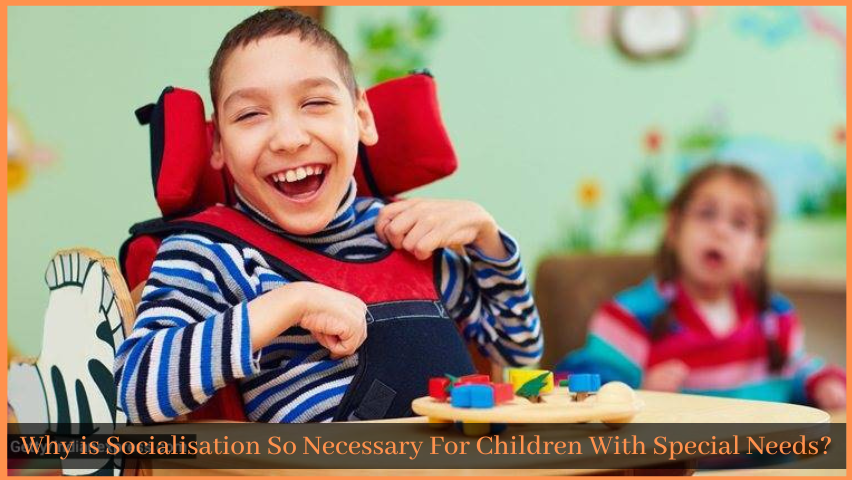Have you ever wondered how you learned to communicate and socialise with people who weren’t family?
Or how did you manage to launch a conversation? These abilities must have come to you gradually. Isn’t that so?
No one is born with the social skills necessary to communicate with friends or family. With time and experience, they will ultimately understand.
It’s important to realise that social interaction skills aren’t something that can be learned overnight.
It takes contact with loved ones at home during the formative years to understand.
When you grow older, your home atmosphere and past experiences have a significant impact on your personality and behaviour.
Your children will, without a doubt, take a little longer to understand and master these basic skills, but the effort will be well worth it if you give them time and patience.
When you have differently-abled children, we fully appreciate your concern and worry. But don’t worry; just be patient.
Recognize and accept your children who have a disability!
Your child likely has a common condition like autism or Asperger’s syndrome.
They may even be dealing with a physical or mental illness.
There are many problems, and they differ from one child to the next.
In almost every situation, it has been discovered that children have social and communication problems.
When it comes to teaching the children social skills, consider integrating real-life experiments to help them understand the circumstances.
There are several forms of therapy available for children, and parents should consider assisting their children with these well-designed therapies.
Behavioural therapy is the most effective and widely used for these treatments.
Aside from therapies, there are other options for getting support-Professional assistance.
Children may benefit from interventions such as behavioural or social therapy, which help them build strategies to cope with and incorporate into their daily lives.
These therapies’ practises are focused on group activities and the role of individuals within the group.
The aim or goal of this therapy is to assist children in reducing anxiety and developing conversational skills.
Via therapy, the professional assists you in shaping your personality.
Children learn to adjust to social circumstances and are granted the ability to make choices on their own, which helps them gain trust.
It will aid in the development of the children’s social interests and encourage them to participate in group gatherings.
As a parent, you’ll need to figure out how to define the techniques based on your child’s learning ability and behaviour.
Learning and development will be promoted by playgroups, support groups, and mentorship programmes.
Look for more ways to communicate with children.
Look for opportunities in the community that are better suited for your children.
These services will be beneficial because they will be led by qualified professionals who are familiar with the emotional and physical needs of children.
Socialization’s Benefits for Differently Abled People
Since socialisation is linked to your child’s overall development, it’s important to start developing these skills at a young age.
It assists in the growth of children’s self-confidence and accountability, as well as their comprehension of what is required of them by others.
It will assist them in meeting their developmental milestones.
As a licenced NDIS service provider, Authentic Life Care is always available to help with all of your needs.
If you need assistance for yourself or your children, our therapists are always available to meet your needs.
While the therapist continues to work with your loved ones, you will help your child thrive in the meantime by being patient and persistent.
It all starts at home after the first class, with you as the first teacher. Isn’t that so?
You’ll find a difference if you give your children time and combine learning with play.













